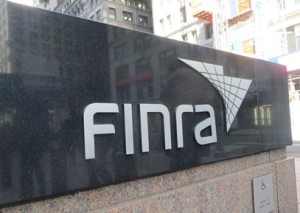 The Financial Industry Regulatory Authority (FINRA) is an independent organization that is authorized by Congress to regulate certain aspects of America’s financial industry. While laws relating to the financial markets are enforced by the Securities Exchange Commission (SEC), oversight of the activities of securities brokers and firms is conducted by the Financial Industry Regulatory Authority. The organization’s initiatives help to reduce opportunities for unscrupulous individuals and businesses to take unfair advantage of investors. While crimes still occur within the United States’ financial markets, the frequency of occurrence of these acts is likely far lower than it would be if there was not a regulatory authority that proactively monitors the actions of financial market players. Here are some of the regulatory authority’s specific functions that demonstrate the organization’s commitment to protecting the financial welfare of the public.
The Financial Industry Regulatory Authority (FINRA) is an independent organization that is authorized by Congress to regulate certain aspects of America’s financial industry. While laws relating to the financial markets are enforced by the Securities Exchange Commission (SEC), oversight of the activities of securities brokers and firms is conducted by the Financial Industry Regulatory Authority. The organization’s initiatives help to reduce opportunities for unscrupulous individuals and businesses to take unfair advantage of investors. While crimes still occur within the United States’ financial markets, the frequency of occurrence of these acts is likely far lower than it would be if there was not a regulatory authority that proactively monitors the actions of financial market players. Here are some of the regulatory authority’s specific functions that demonstrate the organization’s commitment to protecting the financial welfare of the public.
Educate Investors
One of the best ways to protect the public against financial fraud is to arm them with information and education about investing and detecting unethical practices. FINRA provides free information about the financial market as well as interactive tools that allow investors to easily analyze funds or detect too good to be true financial scams. Investors can also access the organization’s database of members to make sure that they do business with licensed brokers who are registered with the national regulatory authority.
Create Investment Rules for Industry Practitioners
The Financial Industry Regulatory Authority used to be known as the National Association of Securities Dealers (NASD), and it has adopted many of the financial industry rules that were created by the NASD. New rules are proposed based on input from investors, member brokers, the SEC and regulatory authority agents who have done extensive financial market research. For example, the regulatory authority published a rule about the amount of money that customers are required to have in their margin accounts for fixed income and equity securities purchases. Once new rules are drafted and reviewed by Financial Industry Regulatory Authority committees, then they are submitted to the SEC for review.
Enforce Compliance with Rules and Laws
Registered brokers and brokerage firm members of the regulatory authority have agreed to abide by the organization’s by-laws and rules relating to the promotion of investment products and brokerage business operations. Member brokers or firms that do not meet the regulatory authority’s standards face disciplinary actions. The organization employs skilled financial analysts to monitor member activities and review their sales materials. Also, investor complaints and alerts of suspicious activity prompt investigations by the organization upon its members.
Monitor Financial Markets for Fraudulent Activities
The Financial Industry Regulatory Authority has the human and technical resources to monitor the financial markets holistically to identify any anomalies that could be linked to wrong doing. They have a division called the Office of Fraud Detection and Market Intelligence that conducts market surveillance using robust software to detect fraud like insider trading and other financial schemes.
Conclusion
Although Congress authorized the formation and activities of the Financial Industry Regulatory Authority, the group is a self regulatory organization that sets high standards for member brokers and firms that want the reputation and responsibility of being ethical financial leaders in the market place. FINRA helps investors of all experience levels to identify the right financial professionals who can help meet their needs with competence and integrity.
